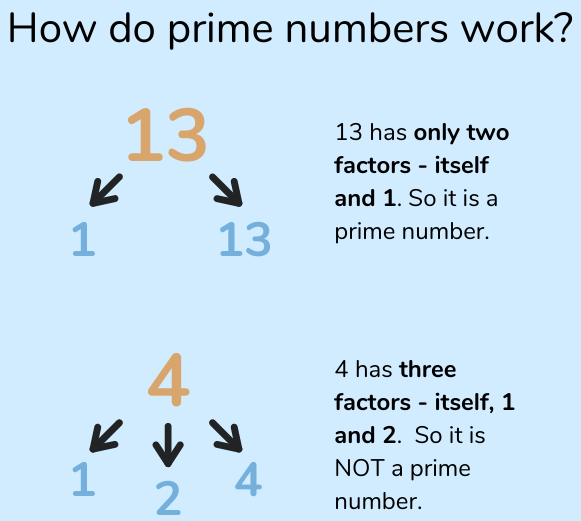The number 10 is not a prime number because it is possible to express it as a product of prime factors. 2 3 5 7 11 13 17 19 23 29 31 37 41 43.

Prime Numbers 1 To 20 List Of Prime Numbers From 1 To 20
Lets find the first 10 prime numbers.

. A prime number or a prime is a natural number that has exactly two distinct natural number divisors. Sum of first 10 counting numbersS10112 55. Thus we have seen the list of the first 10 prime numbers.
This means that the sum of prime numbers below 100 is 1060. The Sum of the first 10 natural numbers is given by the formula. 10 50 100 500 1000 primes.
In a problem which contains a large number of queries a vector can be used to store all the prime numbers in the range of 108 this will take extra O N space. First 10 primes have values between 2 and 29. The first 25 prime numbers are 2 3 5 7 11 13 17 19 23 29 31 37 41 43 47 53 59 61 67 71 73 79 83 89 and 97.
There are 25 prime numbers from 1 to 100. So there are 10 prime numbers below 30. Another way of defining it is a positive number or integer which is not a product of any other.
10 rows About First n Prime Numbers. Its one of an easiest methods to quickly find the sum of any given number series. 2 is the smallest prime number.
The corresponding formulas chart examples and workout may help students teachers or professionals to learn teach or practice the average of first n natural numbers calculation. Nn12 Here n10 101012 10112 511 55 Therefore the sum of the first 10 natural numbers is 55. So 10 is a composite number.
The number series. 10 rows Prime numbers are always greater than 1. For example there are 25 prime numbers from 1 to 100.
First ten prime numbers are 2 3 5 7 11 13 17 19 23 and 29. This prime numbers generator is used to generate the list of prime numbers from 1 to a number you specify. 129 is an average of first 10 prime numbers mentioned in the below table by substituting the total sum and count of numbers in the formula.
They are all prime numbers less than 100. Note For competitive programming. The first term a 1 The common difference d 1 Total number of terms n 10 step 2 apply the input parameter values in the formula Sum n2 x a T n 102 x 1 10.
Checkout list of first. Sum of 1st N prime numbers are 17. HO PE THIS HELPS YOU.
A prime number is a natural number greater than 1 that has no positive divisors other than 1 and itself. To find the sum of the first ten prime numbers you first have to find what the first 10 prime numbers are. Input parameters values.
The first ten prime numbers are 2 3 5 7 11 13 17 19 23 and 29. Step 1 address the formula input parameters values. In other words 10 can be divided by 1 by itself and at least by 2 and 5.
Their sum is 2357111317192329129 that is odd. Sum of first 10 prine numbers 2357111317192329 129. 2 3 5 7 11 13 17 19 23 29 is the list of first 10 prime numbers.
Added together they equal 129. This prime numbers generator is used to generate first n up. They are 2 3 5 7 11 13 17 19 23 and 29.
Out of the first 10 natural numbers there are four.

Prime Numbers Chart Four Awesome Printables Prime Numbers Number Worksheets Prime Numbers Worksheet

What Are The First 10 Prime Numbers Youtube

What Is A Prime Number Explained For Parents Teachers And Children

Prime Numbers Is 1 A Prime Numbers Positive Numbers Number Definition
0 Comments